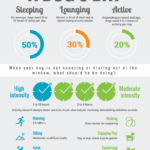Why Does My Dog Hyperventilate
Why Does My Dog Hyperventilate: Causes, Symptoms, and Treatment Options
If you’ve ever seen your dog panting rapidly and shallowly, with their mouth open and tongue hanging out, you may have wondered if they were hyperventilating. While dogs do pant to regulate their body temperature, hyperventilation occurs when they breathe too quickly or deeply, leading to an imbalance in oxygen and carbon dioxide levels in the blood. In this article, we’ll explore why dogs hyperventilate, what signs to look for, and how to help your furry friend feel better.
Causes of Hyperventilation in Dogs
Hyperventilation can be triggered by a variety of factors, such as:
– Stress: Dogs may hyperventilate when they’re anxious or scared, such as during thunderstorms, fireworks, or vet visits.
– Exercise: Dogs may pant heavily after running or playing, but if they continue to do so even when resting, it could be a sign of overexertion or heatstroke.
– Respiratory problems: Dogs with lung disease, heart failure, or upper airway obstruction may struggle to breathe properly and hyperventilate as a result.
– Poisoning: Dogs who ingest toxic substances like chocolate, rat poison, or human medications may experience rapid breathing as a symptom of poisoning.
– Pain: Dogs may pant excessively when they’re in pain from an injury or illness.
Symptoms of Hyperventilation in Dogs
In addition to rapid panting, dogs who are hyperventilating may exhibit other signs such as:
– Restlessness and agitation
– Shaking or trembling
– Weakness or lethargy
– Vomiting or diarrhea
– Blue or pale gums
– Collapse or seizures
If you notice any of these symptoms in your dog, it’s important to seek veterinary care right away. Hyperventilation can lead to a drop in blood pH, which can affect organ function and even be life-threatening if not treated promptly.
Treatment Options for Hyperventilation in Dogs
The treatment for hyperventilation depends on the underlying cause. If your dog is hyperventilating due to stress or anxiety, you may need to provide a calm and safe environment, offer some soothing music or pheromones, or consider medication prescribed by your vet. If your dog is hyperventilating due to exercise or heatstroke, you should move them to a cooler place and offer fresh water, cool towels, or ice packs (but not too cold as it could cause shock). If your dog is hyperventilating due to respiratory problems or poisoning, you should seek immediate veterinary attention.
In general, you can help prevent hyperventilation in your dog by:
– Providing adequate nutrition and hydration
– Avoiding exposure to extreme temperatures or weather conditions
– Monitoring your dog’s breathing rate and pattern
– Seeking regular check-ups with your veterinarian
Conclusion
Hyperventilation is a common problem in dogs that can indicate various health issues. By recognizing the signs of hyperventilation and addressing the underlying causes, you can help your dog breathe easier and feel better. Remember to consult with your veterinarian if you’re concerned about your dog’s breathing or other symptoms, as timely intervention could make all the difference. And don’t forget to give your furry friend plenty of love and cuddles – they deserve it!



